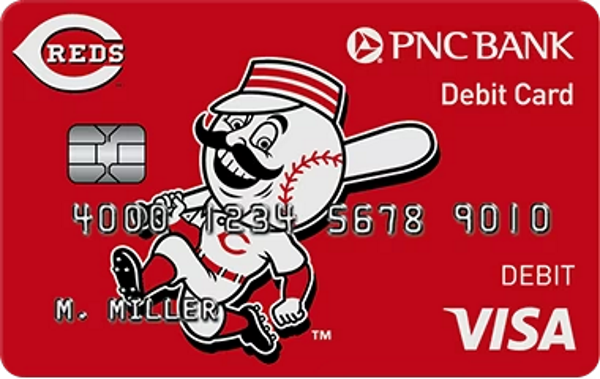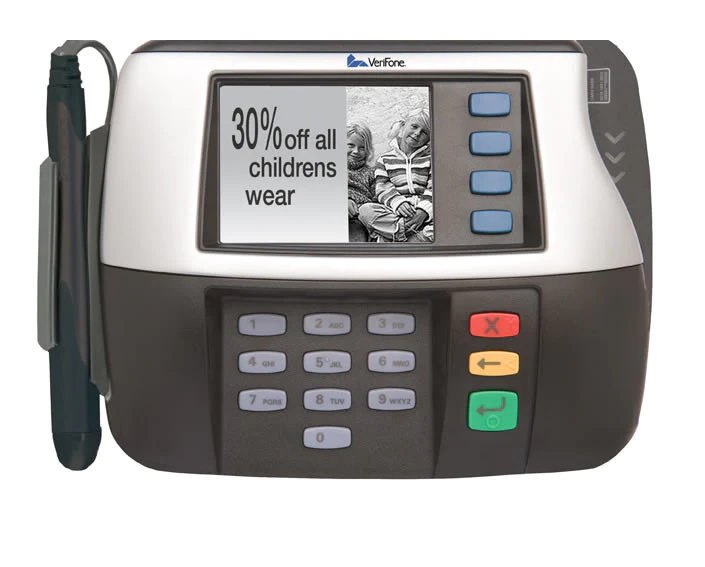
Credit cards are an excellent method to improve credit and could also allow you to purchase more with your money. Credit cards let you borrow money from a bank with the understanding that you will refund the money by the due date on your bill or else you will be charged interest. In addition to providing you with more payment flexibility, credit cards may assist you in building a credit score, which can later be used to qualify for other financial products like loans and mortgages.
Credit cards have become a common feature of our everyday lives. As a matter of fact, with the development of credit cards that provide rewards ranging from cash to airline miles, becoming a very useful financial instrument. However, if you started your account when you were just out of college or when your credit score was low, this might have an influenced your credit limit. The good news is that you may request an increase in your credit limit if your situation requires it. Let’s dig deep at the credit limit as well as how we may boost it even higher on our credit cards.
Join the Accepted Platinum Credit Card Rewards Program!
Table of Contents
What is meant by a Credit Card Limit?
A credit card limit is the maximum amount of money you may borrow or charge on a recurring credit account, such as a credit card. The link between your credit limit and your credit utilisation is important. Credit utilisation is the proportion of available credit that is being used. As you make purchases with your credit card, the amount of each transaction is deducted from your credit limit known as available credit, and it is one of the factors that might influence your credit scores.
Credit utilization should be restricted to roughly 30%, according to the Consumer Financial Protection Bureau (CFPB). It is advised by CFPB that paying off your credit cards every month is the most effective approach to keep that amount low. If your credit card has a $200 limit, you are not permitted to spend more than the allowed amount. Before authorising a consumer for a credit card, the bank determines or sets the credit card limit for that customer. A customer’s eligibility is also determined by several other significant elements.
How is a Credit Limit Determined?
Credit limitations are determined by the lenders, and in the case of credit cards, the limits are established by financial institutions such as banks. Furthermore, there is a range of factors that might influence the selection, including the following:
- Payment History: When setting up a credit card limit, or even when raising the credit card limit, the payment history is taken into consideration. For example, does the individual pay his or her bills on time, or does he or she owe money?
- Current Accounts: How many different accounts does the individual have open? And what kind of loans does he currently have access to?
- Account History: For how long has the individual owned the current account? Has he lately applied for a large number of new lines of credit?
- Income: What is his monthly income? Is he earning enough money to support your monthly expenses?
Why Would You Want to Increase Your Credit Card Limit?
An individual’s buying power is boosted as a result of an increased credit card limit. There are situations in life when you would find yourself in a situation where you need a larger sum of money than you are used to and wish to broaden your financial possibilities. Every individual’s circumstance will be different, as their demand for access to additional cash will rise with time. Following are a few of the reasons:
- For any future crisis: Financial difficulties like medical bills, hospitalisation, or home repairs may strike at any time. Savings accounts or fixed deposits may not be sufficient or accessible in certain scenarios. A high-limit credit card is important. You can pay your normal bills, insurance, and food while still having credit accessible for emergencies.
- Travelling Abroad: If you are visiting a nation with a higher exchange rate, your limit may not be enough to pay your expenses. When you use your card to purchase vacation lodgings, you may soon hit your card’s maximum spending limit. With a greater limit, you may reserve a hotel stay and pay for your purchases.
- A single card is enough: While having numerous cards allows you to send and receive various advantages on each card, it also means that different banks charge varying fees for card maintenance. Having a single card with a bigger credit limit also helps you keep track of your spending and arrange your budget better.
- Increased income: you may want your credit limit to match your new status and your spending demands. Your financial objectives may also alter as you earn more. You may want to invest in or purchase a home. You don’t want to use all your money or disrupt your savings objectives at this moment, so a higher limit credit card may help.
- Supplemental Card for Family Members: Because the credit limit is shared across the primary and secondary cards, a lower limit card has less credit to distribute. Raising your limit means more money for the cards. Caution is advised since any charges incurred on supplemental cards are the primary cardholder’s responsibility. Determine how much each supplemental cardholder will get in advance.
What are the Pros and Cons?
Increasing the credit card limit on your card may be both beneficial and detrimental, depending on your financial situation. Increasing your credit card limit has both pros and cons.
Pros:
- Enhanced Convenience: Having higher credit limits is a plus, especially when paying for large expenses such as vacations or making a large number of transactions in a short period, such as at Christmas. Credit card users who have quick access to more money could take advantage of the additional benefits associated with larger transactions. You won’t have to worry about carrying big quantities of cash with you and can also avoid ATM costs.
- More Emergency Resources: Having more credit also means that you’ll be better prepared to cope with unforeseen emergencies, such as being hit with a hefty medical cost or needing to pay for emergency repairs to your house. The ability to spend money when you do not have it on hand might be a gift in certain instances.
- More Rewards Points: One more benefit of transferring more payments from cash to credit is that you may accumulate more rewards points. Every swipe of a credit card earns cash-back, reward points, and so on, and as the credit line grows and the spending grows, so do the incentives. Furthermore, when the cardholder pays his or her credit card payments on time, these advantages grow. The reward points earned let the cardholder spend them on things like hotel reservations, tickets, eating, and so on, decreasing the need for direct cash-outs.
- Improves Credit Score When Used Responsibly: When utilised responsibly, it may help to raise one’s credit score. To be deemed a financially safe and responsible credit card holder, a user can show the capacity to repay the amount owed to the financial institution by using a credit card responsibly. This also helps to raise a cardholder’s credit score, making it simpler for him or her to qualify for loans at reduced interest rates in future.
- Lower Credit Utilization Ratio: A higher credit limit means a lower credit usage ratio, which might help you improve your credit score. If you maintain using credit while growing available credit, your credit consumption will drop and your credit score will rise. As a consequence, paying your credit card bill in whole and on time every month might enhance your credit limit flexibility while reducing your credit utilization ratio.
Cons:
- Mortgage Risk: If you pay back your credit card balance in full each month, having a larger credit limit may make it more difficult for you to qualify for a mortgage. It’s possible that when lenders are compiling a list of your assets and obligations, they will compute your credit card debt as not the amount you owe, but as the amount, you may potentially owe instead. A $1,000 debt against a $5,000 limit, for example, maybe assessed as a $5,000 debt.
- Rejection Risk: You may be subject to rejection if you apply for a credit increase just because you have been requested to do so by your lender. That would not only be inconvenient, but it would also be detrimental to your credit score since when you are denied credit, your credit score drops.
- The Possibility of an Increased Debt: The greater your credit limit, the more probable it is that you may get trapped in a debt cycle. The actual process of turning over cash may operate as a deterrent to making risky purchases when people pay with credit cards, as opposed to when they pay with cash. You may not be aware of how much you’re spending until the bill comes at the end of the month if you don’t have to hand over any cash.
If you don’t pay on time, you’ll be charged hefty interest. Getting a bigger credit line means greater spending power, but it also means more debt. If you can afford more, you may spend more than you can afford to repay, adding up interest costs.
Budgeting is an excellent technique to reduce credit card usage while assessing monthly expenses. Never spend more than you can pay back in a month. Paying late might result in late penalties and even a credit score drop.
How to Increase Your Credit Card Limit
There are a variety of options to consider for increasing your credit limit to a level that you are comfortable with. There is some financial discipline required, as well as preparation and patience.
- Make a request online. Many credit card providers now enable their users to request an increase in their credit limit online. Once you’ve logged into your account, search for the option to make a request. You may need to provide your income details. The fact that you earn more money may signal that you have more financial stability, which lenders may take into account when reviewing your credit application.
- Call your credit card company. For further information, contact customer support by calling the number on the back of your card and asking if you are eligible for a larger credit limit. The representative may inquire as to the basis for your request, as well as whether or not your income has increased in recent months.
- Pay your payments on time. Paying your credit card bills on time can boost your credit limit. Paying late hurts your credit score. Paying your payments on time will show the bank that you can return them and gain their confidence, allowing them to raise your credit limit.
- Clear your current debts. Before seeking an increase in your credit limit from your bank, pay off any house or personal loans. Before granting your request, banks will look into your present debt. A higher level of debt equals a lesser likelihood of receiving a credit limit increase.
- Reduce your credit card utilization. If you want to raise your credit limit, you must reduce your credit use. This will have a favourable effect on your credit score in the long run.
- Prove your income. Your income decides your credit card limit. Providing current income evidence helps banks increase your credit limit. Banks seldom raise credit limits for existing clients. Submitting payslips and updating bank information increases your chances of greater limitations.
- Don’t spend everything on your credit card. Don’t go over your credit limit. A credit card is a requirement that comes in handy during times of need. It is recommended that you spend up to 30 per cent to 40 per cent of your credit limit since low credit usage implies that you are not reliant on your credit card to handle all of your expenditures. Spending less money can also make it easier for you to pay off your debts and improve your credit score.
- Keep an eye out for automatic increases. When a cardholder has had the card for some time and has been using it properly, certain firms may automatically boost their credit limit for them.
- Go for a new credit card. If you’ve been diligent about making on-time payments on the lines of credit you currently have, and when your credit is in good standing, you could be accepted for a new credit card with a greater credit limit. If the limit on the new card is not greater than the limit on your existing card, it will nevertheless raise your total amount of accessible credit.
Conclusion
A credit card is similar to an emergency fund which should never be abused. It is preferable if your credit card is only used for necessities such as utilities, bills, and other necessities. An increase in credit limit offers numerous advantages, but it also increases the urge to spend more which could result in various risks. It’s better to pay attention to your spending habits, to note when you feel inclined to spend more and to ask yourself a question right before you do, like a brief self-check before each buy. Always cut your coat to fit the cloth you have. Spend only when necessary. You can’t use it when you would like to. Always think wisely before spending.



